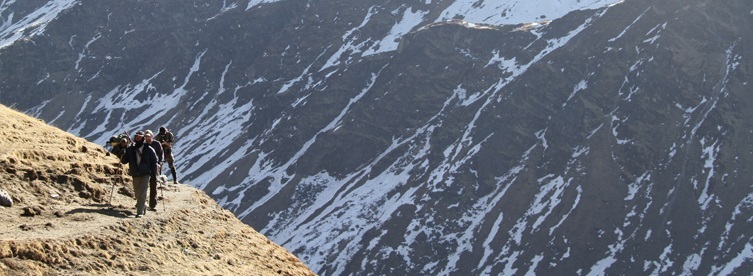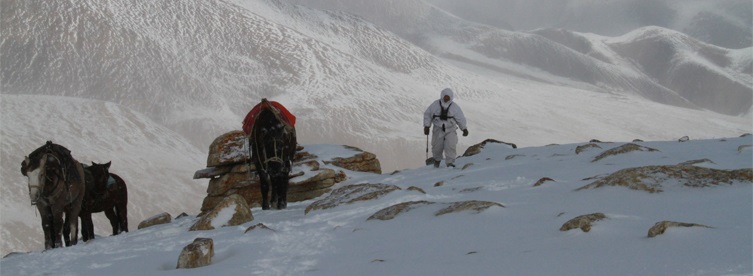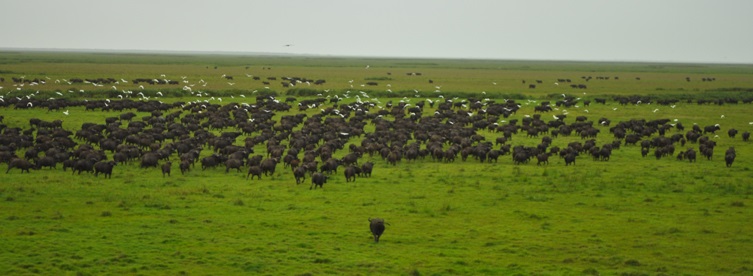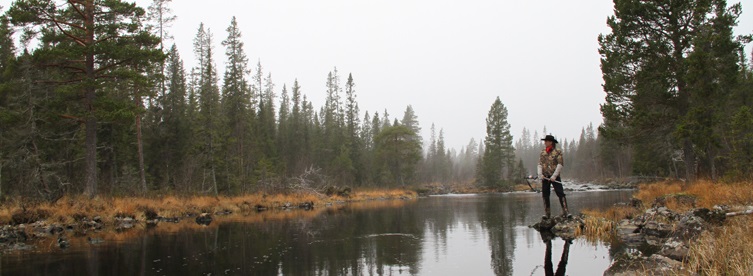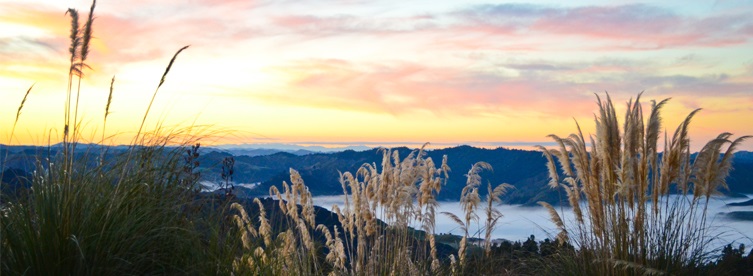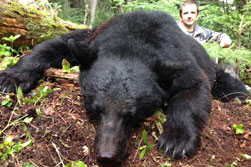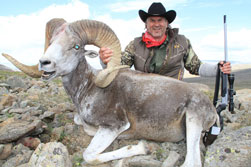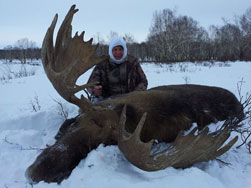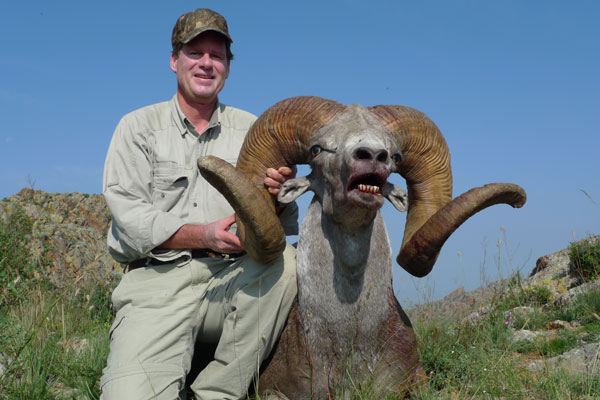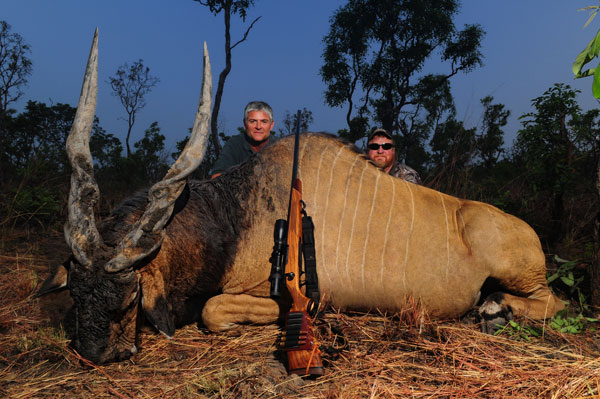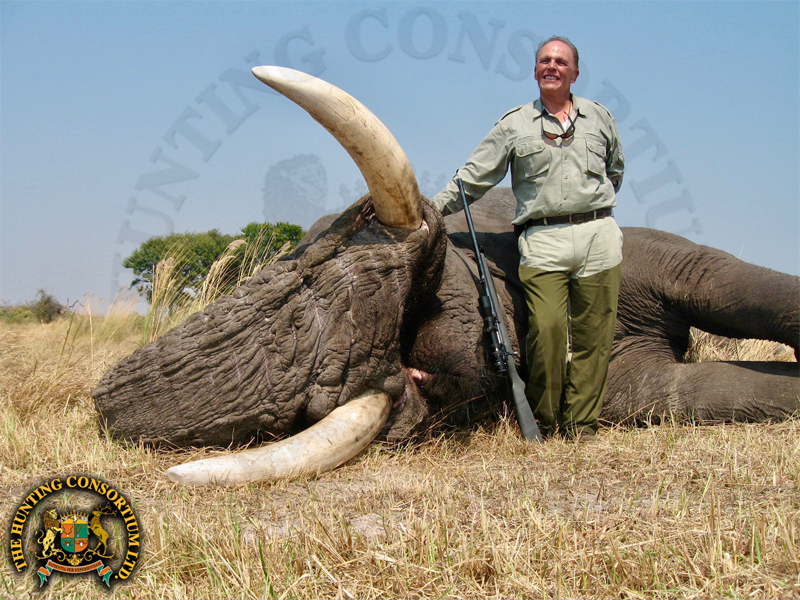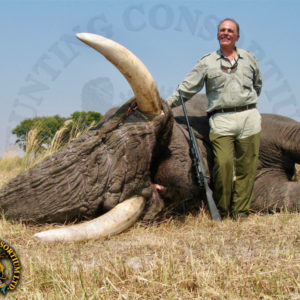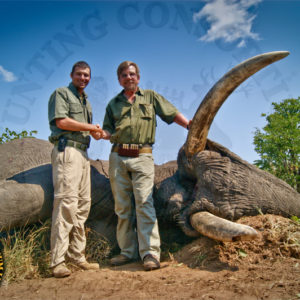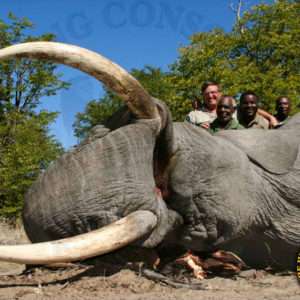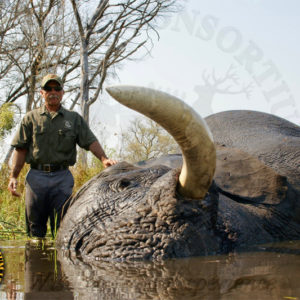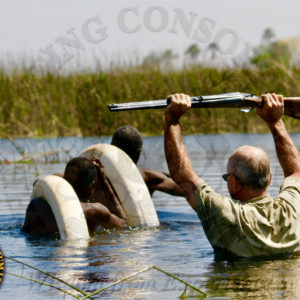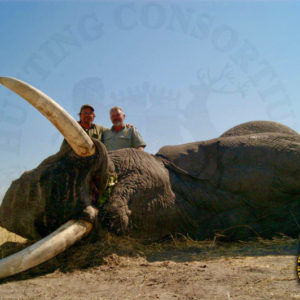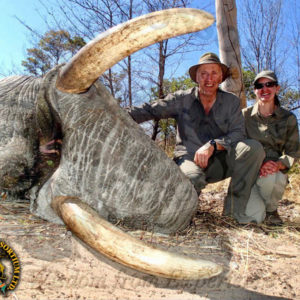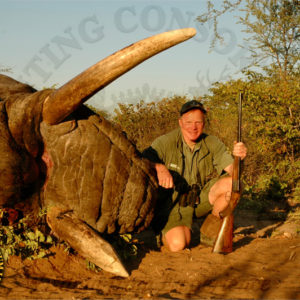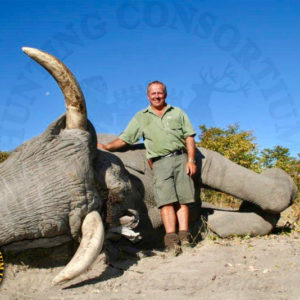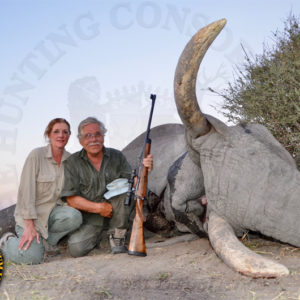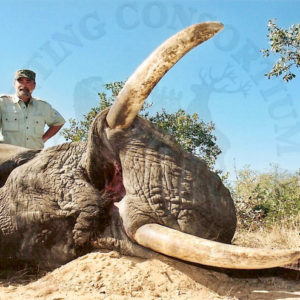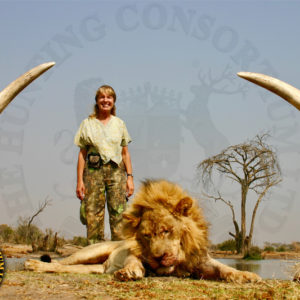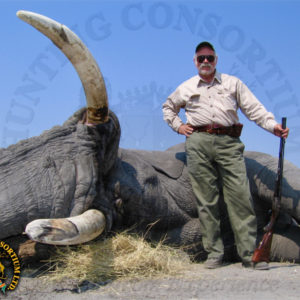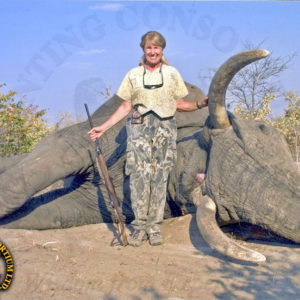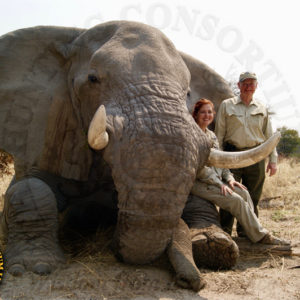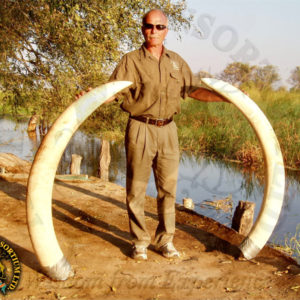Sign up for our Email Newsletter
African Elephant
Introduction to Elephant Hunting:
Elephant hunting is the most exciting form of big game hunting in the world! The African elephant is the largest game animal on earth and the undisputed leader of the African “Big Five”. Elephants are the only big-game animal that you will shoot up at, while standing less than 30 yards away! Fortunately, modern wildlife management has provided for the safety of this great game animal and its numbers are secure, and increasing. In fact, elephant overpopulation is a real threat to ecosystems in Botswana, Zimbabwe, and in South Africa. With the increase of human populations and the loss of wild habitat, elephant overpopulation has caused a massive increase in human-wildlife conflict, leading to defensive poaching, and dangers to both local communities and elephants.
Human-wildlife conflicts have spiked all over southern Africa in recent years, especially during the dry season when elephants come in contact with humans as they compete for limited water sources. Due to the loss of habitat, elephants in pursuit of water and food will raid crops, destroy homes, and even kill people. This is especially true for rural communities where human-elephant conflicts are the highest. Crop raiding elephants can destroy an entire year’s crop in just one night, threatening starvation for impoverished villagers.
Elephant Hunting Countries:
Botswana
The official elephant population in Botswana varies from study to study, however most experts put the population between 150,000 to 200,000 elephants, while the carrying capacity of the ecosystem is only roughly 80,000. An ecosystem’s carrying capacity is the total population of game that can be supported sustainably in a given area. Elephants eat roughly 400kg (880lbs) of vegetation and drink over 120 liters (31 gallon) of water per day. Great damage has been done to once verdant forests and wetlands such as the Chobe and the Okavango. Hence, Botswana is by far the most popular destination for elephant hunters and the overpopulation of elephants there ensures a wide selection of trophy bulls. This country has produced some of the heaviest ivory of all countries in which elephant hunting is currently allowed. Although Botswana was never famous for 100 pound elephants in the hey-days of ivory hunting, countless bulls can grow to old age there, which is an essential factor in producing large ivory. The average tusk weight taken in Botswana in the last decade was between 58 and 68 pounds (per tusk), with exceptional elephants of over 80 pounds being taken each year by the best operators. The largest elephant we have taken in Botswana carried massive tusks, weighing 97 x 87 pounds. Today, after being closed to hunting for 7 years, hunters traveling to Botswana are sure to see hundreds of elephants during a 10 day hunt and the chance for that magic 100 pounder is very real!
After the closure of Botswana, Zimbabwe became the most popular destination for elephant hunters due to transient elephants migrating between Botswana and Zimbabwe and also because of Zimbabwe’s large resident population of elephants. Prices are more modest in Zimbabwe than elsewhere and the quality of ivory, at least with the leading operators, has been remarkably uniform, safari to safari, year after year. This country continues to produce good trophy quality elephants with tusk weights between 40 and 55 pounds. Our best professional hunters have constant success rates of nearly 100% and the largest ivory taken by our leading professional hunter in Zimbabwe weighed a staggering 101 x 89 pounds.
At the moment prices in Zimbabwe are depressed due to the on-going political crisis. The large, remote tribal and government concessions where elephant hunting takes place are still safe for foreign travelers Hunting Consortium staff, travel to Zimbabwe almost every year to verify that the security situation is satisfactory and monitor the hunting areas to ensure quality and sustainability.
Elephant hunting was reopened in this country in 2005 after a closure of more than 20 years. The elephant population in Zambia, like that in neighboring Tanzania, was heavily damaged during the poaching of the 1970s and 1980s. Nowadays the population has recovered well and hunters report a good selection of bulls during their hunts. The harvest quotas are small and not all areas in the country produce good results.
The reopening of government concessions in the Caprivi Strip in northern Namibia have been a great asset to elephant hunters. This area is heavily populated with elephant, as it borders the northern part of neighboring Botswana. Studies of regional migrations of elephants indicate that these animals in fact move between Botswana and the Caprivi Strip on a seasonal basis. Ivory in Namibia is usually of the short, thick variety, weighing on average between 45 and 65 pounds. Several large trophies over 70 pound are taken every year. Prices in Namibia are more modest than in Botswana.
This country’s elephant population was heavily damaged during the civil war in the 1990s, and elephants there were especially hard hit. Some areas however, were virtually untouched by the fighting and many others have since recovered. There is now a sustainable population of elephants there, especially in the northern region of the country in and around the huge Niassa Reserve. Mozambique was never famous for 100 pound elephants, but good trophies in the 55 – 65 pound range can be found, with the occasional trophy over 80 pounds. Three elephants weighing over the magic 100 pound mark have been taken during the past 10 years – all of them in the northern coutadas.
Mozambique is also a good choice for buffalo, lion and leopard. Especially in the Zambeze Delta. It offers perhaps the best VALUE in mixed bag big game hunting today. Prices have risen in recent years however, this country still offers some of the best values in African hunting today. As it continues to regain its former reputation as a great safari venue, prices will undoubtedly continue to rise.
Camps
Although camps vary from place to place, clients will usually have a typical, large safari tent or bungalow made of natural materials, with en-suite toilet and shower facilities. Dinners are elegantly set up in dining areas which are set in the most beautiful of places. An experienced staff caters to your every need. Great meals are the rule, often prepared from wild game and fresh locally grown vegetables and salads. Daily laundry service is available in all camps.
Travel Arrangements
As a full service travel company, the Hunting Consortium will make all necessary flight and hotel arrangements as well as procure any required visas and firearm permits. Hunting Consortium can assist you in getting the best airfare routing that best suits your desired itinerary and destination. When you are ready to book a hunt, we will construct a custom itinerary plan for you, designed to your specific requirements. Hunting Consortium will provide you with complete advice and suggestions on everything related to the hunt, from equipment and immunizations, to trophy shipping and a host of other necessities. Each of our hunters receives detailed information material on the hunts, country, inhabitants, and travel formalities. The firm also provides every hunter with a map, equipment checklist and other articles designed to prepare them for the hunt. Our staff is available to you seven days a week to answer any questions you may have concerning the organization or execution of the hunt.
We at the Hunting Consortium pride ourselves in planning hunts that deliver the right results for every client according to his/her own individual taste, budget and trophy quality aspirations. Elephant hunting is a very complex theme, so we encourage those interested to contact us for a thorough briefing and consultation, in order to determine the right hunting option.
Wisdom From Experience
The Hunting Consortium offers its clients unparalleled experience in Africa, having arranged safaris for more than 40 years! We work for a wide variety of customers and pride ourselves in giving individual attention and in tailoring every safari to the needs and goals of each client. No other company provides the depth of service and individual attention which we do.
Bob and Margarete Kern have owned safari companies in both South Africa and Tanzania. Bob and Rob Kern as well as other members of the experienced Hunting Consortium staff have personally hunted every area offered by the Hunting Consortium and visit concessions and areas frequently to keep the information we provide current. We know personally every operator we recommend. The Hunting Consortium is uniquely qualified to assist our clients in any realistic hunting desire in Africa. We know who to hunt with, when to hunt for the best possible results, and how to get there as efficiently as possible.

